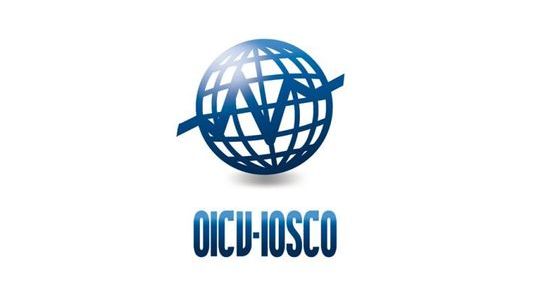Press Release: Hedge Fund Industry Pivots towards ESG Investing
Published: 06 February 2020
TORONTO (Feb. 6, 2020) – An increasing number of institutional investors are requiring their hedge fund managers to incorporate environmental, social and governance (ESG) factors in the course of their investment activities. Such investors now see ESG investing as serving their own long-term interest as much as those of wider society.
These are among the key findings of a new report, Sustainable investing: fast forwarding its evolution, published by KPMG, the Alternative Investment Management Association (AIMA), Chartered Alternative Investment Analyst Association (CAIA) and CREATE-Research. The report was launched today at the Cayman Alternative Investment Summit, Grand Cayman.
Involving 135 institutional investors, hedge fund managers and long-only managers with total assets of USD$6.25 trillion in 13 countries, the survey shows that increasingly, investors now expect their asset managers to deliver attractive financial returns while considering the environmental and social risks associated with their investments.
“Thus, the traditional risk-return equation is being rewritten to include ESG factors” said Anthony Cowell, Head of Asset Management, KPMG in the Cayman Islands and co-author of the report. “In the hedge fund industry, ESG has gone from being a nice-to-have to a must-have”.
Some 45 percent of institutional investors now base their investments in ESG-based hedge funds on the view that they offer opportunities to generate alpha, while also offering a more defensive portfolio that looks beyond the blind spots in markets that are slow to price in ESG risks.
Hedge fund managers have duly responded by advancing in the familiar ESG adoption cycle. Currently, 15 percent of the surveyed hedge fund managers define themselves at the ‘mature’ stage, where ESG is implemented across the firm via appropriate policies, committees, research and data. A further 44 percent are at the ‘in progress’ stage, while 31 percent are still at ‘awareness raising’ stage; leaving the remaining 10 percent as ‘no implementation to date’.
“Sustainability is set to reshape the ecosystem of capital markets and the behaviors of their participants. It requires mindset shifts from the way investing has been done historically,” said Andrew Weir, KPMG Global Head of Asset Management, KPMG International, and a partner with KPMG China. “It will become the gold standard in investing.”
In the process, three avenues have been principally used by the surveyed hedge fund managers; incorporating ESG factors into investment process (52 percent), excluding securities that sit uncomfortably with the personal values of investors (50 percent) and shareholder engagement (31 percent).
Currently, 29 percent of hedge fund managers and 11 percent of institutional investors report positive outcomes. The scale of adoption and the outcomes so far have been hampered by the difficulties in creating a direct line of sight between ESG factors and their investment outcomes.
“Creating the necessary infrastructure of data, skills and technology is proving challenging” added Amin Rajan, CEO, CREATE-Research and the report’s co-author. “Progress may not be enough, but it remains exponential. Investors and their managers are having to climb a steep learning curve via learning-by-doing.”
On the upside, however, the resulting price anomalies offer opportunities to generate alpha for those who are progressing fast on the learning curve. Markets usually price in progress only when it is in the rear-view mirror. “Responsible investment is becoming ever more of a focus in asset management. Nearly two thirds of managers surveyed have made significant progress in ESG implementation” commented Jack Inglis, CEO of AIMA. “The challenge for our members moving forward is ensuring that the available data and corporate disclosure standards continue to improve.”
Winds of change
Winds of change are evident, according to the report. Data vendors are experiencing rapid consolidation. The rise of big data and machine learning is improving the quality and timeliness of information. Above all, better engagement with the investee companies is also serving two essential aims: bolstering the available data with a better picture of the reality on the ground and providing an information edge.
Under institutional pressure, managers are now increasingly expected to act as agents of change by taking their stewardship role more seriously. Indeed, a ‘carrot and stick’ approach to corporate engagement is emerging. Under it, investors and managers have increasingly collaborated with their peers and external advocacy groups in promoting ESG-related goals among the target companies. Where their efforts appear to bear no fruit, some managers now explore other options with the most extreme, albeit rare, including divestment.
Such a pragmatic activist approach is part of a broad thrust that aims to minimize greenwashing by demanding better data, complying with industry codes of practices, improving reporting and enhancing transparency.
The survey report concludes that ESG investing across the broader financial services is poised to gain further traction with governments, regulators, asset owners and asset managers collectively pulling in the same direction. ESG concerns are the biggest challenges of our age. Leaders can make a huge difference.
END
For more information please contact:
Jennifer Samuel
KPMG International
+416 777 8491
[email protected]
Rojin Kiadeh
AIMA
T: +44 (0)20 7822 8380
E: [email protected]
About KPMG International
KPMG is a global network of professional services firms providing Audit, Tax and Advisory services. We operate in 147 countries and territories and have 219,000 people working in member firms around the world. The independent member firms of the KPMG network are affiliated with KPMG International Cooperative ("KPMG International"), a Swiss entity. Each KPMG firm is a legally distinct and separate entity and describes itself as such.
About AIMA
The Alternative Investment Management Association (AIMA) is the global representative of the alternative investment industry, with more than 2,000 corporate members in over 60 countries. AIMA’s fund manager members collectively manage more than $2 trillion in hedge fund or private credit assets. AIMA draws upon the expertise and diversity of its membership to provide leadership in industry initiatives such as advocacy, policy and regulatory engagement, educational programmes and sound practice guides. AIMA works to raise media and public awareness of the value of the industry. AIMA set up the Alternative Credit Council (ACC) to help firms focused in the private credit and direct lending space. The ACC currently represents over 170 members that manage $400 billion of private credit assets globally. AIMA is committed to developing skills and education standards and is a co-founder of the Chartered Alternative Investment Analyst designation (CAIA) – the first and only specialised educational standard for alternative investment specialists. AIMA is governed by its Council (Board of Directors). For further information, please visit AIMA’s website, www.aima.org.
About CREATE-Research
CREATE-Research is an independent research boutique specializing in strategic change and the newly emerging business models in global asset management. It undertakes major research assignments from prominent financial institutions and global companies. It works closely with senior decision makers in reputable organizations across Europe and the US. Its work is disseminated through high profile reports and events that attract wide attention in the media. Further information can be found at create-research.co.uk.







